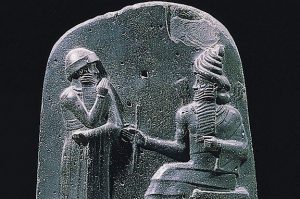Bribery
Bribery or bribe as it is also known, refers to the offering, delivery, solicitation or receipt of any article of value as a means of influencing the actions of an individual who has or may have a public or legal duty. This type of action results in a situation that must be handled objectively and responsibly in decision-making. Bribery is a crime and both the offeror, and the recipient can be criminally charged.

Related topics
Corruption, bank fraud
What is a bribery?
Bribery is a situation considered a crime in which a bribe is given to corrupt a person in order to obtain a favor or advantage from them, be it money, gifts or goods.
About bribery
A bribe consists of offering, giving, receiving or soliciting something of value with the purpose of being able to influence the action that an official has in the exercise of his public or legal duties. It is important to stress that the expectation of a particular voluntary action in exchange for a benefit is what makes the difference between a bribe and a private demonstration of goodwill. Regardless of who initiates the deal, either party to a bribe may be found guilty of the crime independently of the other.
When it is a crime?
The bribery is considered as a criminal act that goes against the public administration when the authority or a public official or a private individual, for his own benefit or that of a third party, performs the following actions or omissions:
- When the authority receives or requests by itself or by an interposed person, a gift or present, or who accepts an offer or promise to perform, in the exercise of his office, an act or omission constituting a crime.
- A public authority or official who requests or receives a gift or promise for performing an unjust act related to the exercise of his position that does not constitute a crime.
- A public authority or official who, having received or promised a gift, refrains from carrying out an act that he or she should practice in his or her position.
- When the persons who with gifts, present, offers or promises to corrupt the authorities or public officials.
Types of bribery
There are several types of bribes, among which we can mention the following:
- Active bribery: it is when the crime is carried out from the third party’s perspective that the individual who offers or gives a gift of any other kind to a public official in order for him to carry out an action contrary to his duties is punished.
- Passive bribery: this type is valued from the point of view of the authority, public official or person exercising public function when they request or receive from a third party a gift of any kind to perform in the exercise of their office an act contrary to their duties, or not to perform or to unjustifiably delay what should be done.
- Impervious Passive Bribery: the crime is committed when the public official in his own benefit or in the benefit of a third party asks for donations to perform an act proper to his position.
- Improper bribery: the gift is given in consideration of the position exhibited by the official. Nothing has to be done or not done.
Elements
Intent is one of the elements that must be established to prove the crime of bribery. Corrupt intent is the intention to receive a specific benefit in exchange for payment. Intention to take the opportunity to perform a public act and illegally acquire a personal benefit or advantage from the person receiving the bribe amounts to an attempt at corruption.
Another element required to constitute the offence of bribery is that a bribe must involve something of value that is used to influence the recipient’s action or non-acquisition. However, the bribe should be necessarily in the form of money. It is sufficient if the recipient obtains something of value to himself from the bribe.
How it differs from concussion
It differs from concussion in that concussion occurs when a public servant or official abuses of his office or functions for the purpose of inducing another person to promise or to give this same official or a third party, money or profit. It uses phrases such as: “let’s see how we benefit”, “let’s see how we collaborate”.
Penal Code by country
- Argentina: Article 256 of the Criminal Code does not require that the act be “proper” to the specific function of the official receiving the gift, but only “relative” to such functions, and that it may affect the legal good protected by the Criminal Law by repressing crimes against public administration.
- Chile: bribery is seen as a crime committed by a public employee who requests or accepts to receive an undue economic benefit or “bribe” to carry out an act proper to his position, for omitting it, for violating his duties, for exercising influence or committing an official crime and is found in articles 248, 248 bis, 249 of the Criminal Code.
- Colombia: anyone who gives or offers money or other utility to a public servant, in the cases provided for in the two preceding articles, shall be liable to imprisonment for forty-eight to one hundred and eight months, a fine of sixty-six point sixty-six to one hundred and fifty legal monthly minimum wages in force, and disqualification from exercising public rights and functions for eighty to one hundred and forty-four months.
- Mexico: it is stipulated in article 222 which states that it commits the crime of bribery: a public servant who by himself, or through an intermediary person, improperly requests or receives for himself or for another, money or any other gift, or accepts a promise, to do or fail to do something just or unjust related to his functions, and who spontaneously gives or offers money or any other gift to any of the persons mentioned in the preceding section, so that any public servant does or omits a just or unjust act related to his functions.
Examples of bribery
Some examples of bribery in the public sphere are the following:
- When the traffic officer receives the money by a private individual so that, the individual can pass a driving test.
- When money is given to a public official and he or she accepts it so that, the papers you need can be drafted more quickly.
- When a percentage of money is given to a company buyer to buy only your products.
Examples among individuals:
- When you offer money to an acquaintance to do a series of errands for you more quickly.
- When you pay a classmate to do your homework.
How to cite this article?
Briceño V., Gabriela. (2019). Bribery. Recovered on 3 January, 2025, de Euston96: https://www.euston96.com/en/bribery/









